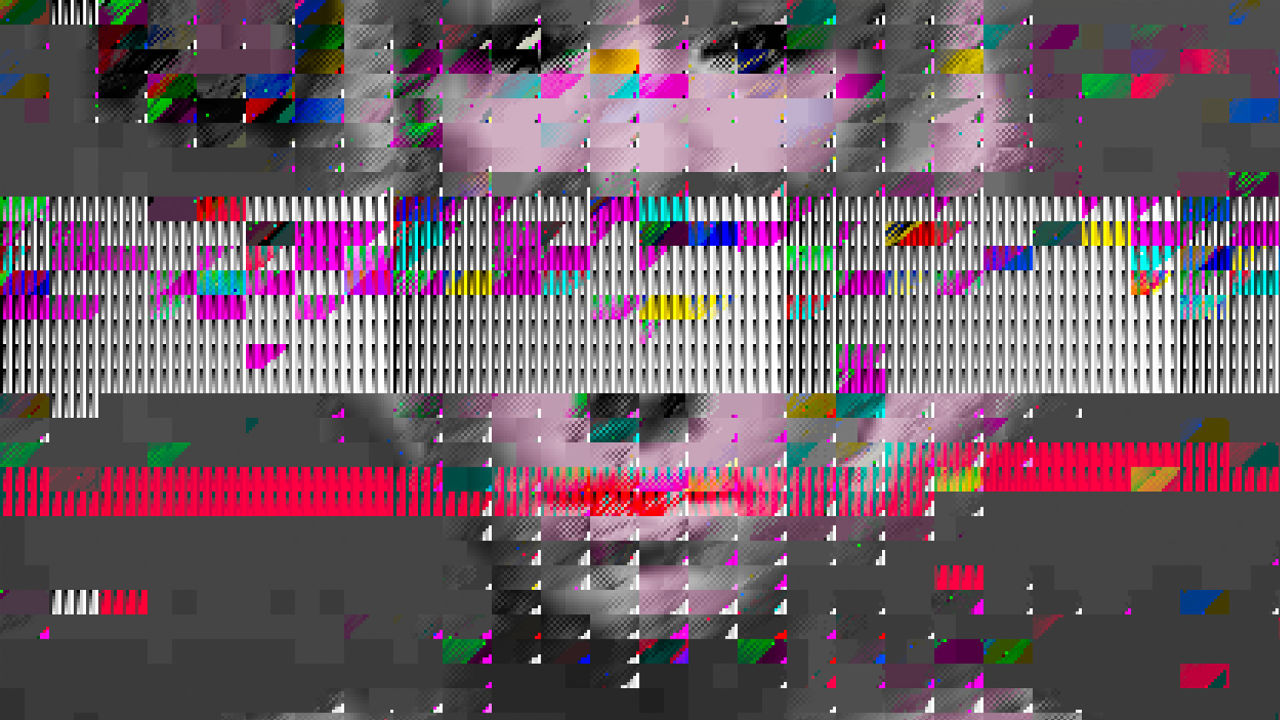Thinking has power over us and not vice versa. When a thought comes along it is like an itch that we have to scratch. We can’t NOT scratch it – if we try not to scratch it the urge to do so just becomes more and more unbearable until we have to give in to it. The itch gets worse the more we fight against it, the more we try to stand firm against it.
Thoughts are just like this, only we don’t usually see that they are because we scratch them as soon as they come along. When we think a thought it is because as soon as the thought arises we immediately ‘go along with it’ – we go along with it so quickly that we think that the impulse was our own and not external to us. The suggestion that thoughts are ‘external compulsions’ and not voluntary behaviour on our part is strange to us – this isn’t the sort of thing we normally hear people say. We aren’t brought up to look at things this way!
If thoughts were under our control, and if we only ever thought because we wanted to, then we would never have any problem with our thinking! This however is very obviously not the case – it often happens that we’re thinking and we realize that we can’t stop thinking, or that we’re thinking about something and we don’t want to be thinking about it. When the thinking mind ‘turns against’ us in this way then it becomes very clear that our thinking isn’t under our control in the way that we might have previously assumed it was. This is true for almost everyone -whether they realize it or not – the only difference being that we just don’t notice the fact until our thoughts become distressing for us.
To most of us the suggestion that it might be helpful to look into our thinking and see what it is and how it works probably seems ridiculous. In the first place, we’re all pretty much convinced that we already know what thinking is, and in the second place we aren’t interested in ‘how thinking works’ so much as we are interested in what it is telling us, or what it is showing us. To be interested in how thinking works would be like a movie-goer sitting in the cinema wonder how the film was made, and what went into it; most of us haven’t the remotest interst in what goes on behind the scenes to make the movie – we just want to munch our popcorn and enjoy the show. This is the usual way for us to be – it takes some kind of disturbance, some kind of ‘mental upset’ for us to actually start getting interested in anything below the surface.
Unless we do get interested, however, thought will continue to have power over us and not vice versa. We will continue to be the puppets of our thinking – if our thinking tells us something good is going to happen we will get excited, and if it tells us something bad is going to happen we will get anxious. If our thinking tells us everything is great we will feel on top of the world, and if it tells us everything is terrible we will feel down in the dumps or depressed. We will go up and we will go down, according to the activity of our thoughts, according to what our thoughts tell us. Generally speaking, as we have said, it’s only when our thoughts start to give us a hard time that we start wondering what we can do to become free from the thinking that is making us suffer.
The most important thing if we wish to stop being under the control of our thinking is to see that we are under its control! If I understand this much then I have made a great leap forward, and if I don’t understand this much then I’m not going to get anywhere…
Once we do see who is wearing the trousers, who is the boss and who is the puppet, then we can start working realistically with our thinking so as to slowly undo its power over us. The thing to understand about a thought is that it is a persuader and that like all good persuaders it uses both the carrot and the stick. On the one hand thinking will offer us something interesting, something alluring, something to attract us in – some kind of promise that gets our saliva going… On the other hand thinking will get our attention by scaring us, worrying us, threatening us. If the one approach doesn’t work then the other is sure to!
The first approach – the attractive approach – is how thinking usually snares our attention. This is very much like a tabloid newspaper or glossy magazine – we get tempted in with a multitude of ‘hooks’ regarding this scandal or that scandal, this sensation or that sensation, and so on, and once we get sucked in then we’re caught. Thoughts can also capture our attention by using fear however and this is what happens in anxiety – the thought in question warns us of some kind of disaster, some kind of bad thing that is going to happen, and because we are so averse to this disaster, this ‘bad thing’ that is supposedly going to happen, we get pulled in like a fish on a line. It is as if someone comes up to us and says “You’re in trouble! Something terrible (whatever it is) is going to happen!” Because this keys so expertly into our fears (whatever our fears might be) we find ourselves hopelessly snared. We have to listen to the worrying thought not only because we feel that we need to know the information it is telling us, but also because we might then find out some way of escaping from the looming disaster, some way of preventing the ‘bad thing’ from happening…
The key to not being snared by whatever thoughts arise in any given moment is therefore to not be so attracted to whatever treats the thought is promising us, and not so averse to whatever disasters it is warning us about! The key is not to be so reactive, in other words. Our way of understanding how we are to go about ‘not being so reactive’ is generally confused, however. For example, if I feel myself reacting in one way – to be interested or attracted to something, for example – then what I would do to stop myself being pulled in would be to fight against the urge. The problem with this is that my fighting against the urge is just as much ‘a reaction’ as the original urge was, and so I’m not in any way learning to be less reactive! Whether I viciously yank the steering wheel to the left or to the right makes no difference – I am still essentially doing the same thing.
What we’re doing when we try to fight against our own reactivity is that we ‘switch the reacting around’ – we switch a positive for a negative (or a negative for a positive) but we are of course not really getting anywhere this way. If the compulsion is making me be attracted to something I pull away from it, and if the compulsion is making me want to pull away from it then I try to push myself into it! ‘Push’ and ‘pull’, YES and NO are all I know! Reactivity is not cured with more reactivity however – something else is needed, something quite different.
A good way to look at what this ‘new’ thing is that is needed if any genuine change is going to be brought into the situation (any change other than just swapping a YES for a NO or a NO for a YES, that is!) is to talk in terms of space. When we react what we are trying to do is to take away any space for the event that we are concerned about to happen in any other way than the way we want it to. By limiting the space for things to happen any other way we hope to force the issue. So if I want YES to happen I take away the space for NO and if I want NO to happen I take away the space for YES. Whichever way around I do it I am ‘taking away space’ because taking away space is the only thing I understand. It is my only strategy, my only gimmick, my only trick, and so I keep on playing it!
The new and radically different possibility to the strategy (which isn’t a good strategy at all because it makes things worse rather than helping) is therefore to give space, not take it away. ‘Giving space’ isn’t a strategy (any more than it is a gimmick or a trick) because, for one thing, I don’t actually ‘do’ anything, and for another thing because it’s actually real and genuinely helpful. It isn’t a cheap trick, or a sneaky ‘avoidance’. Giving space to a situation isn’t something I ‘do’ because the situation already has space – every situation already has space until we take it away (or try to take it away) and so all I need to learn is how to stop automatically trying to force this issue. All I need to do is to learn to get better at allowing the space that’s already there to be there, and not thinking that I have to take it away. In addition, I have to develop insight into the fact that space is a good thing and not a bad thing!
This insight is actually the only thing that is needed. Once I understand deep down that neither pushing nor pulling are going to make any difference, once I understand very thoroughly that violent action and straining are only going to increase the pain and suffering that I am going through (just as punching the wall as hard as I can is only going to increase my pain and suffering!) then the heart goes out of the mechanism which is behind the automatic reacting. The reacting is based on the belief – which is a belief that I never question – that fighting against a compulsion can make it go away. Compulsions come in many guises – I could be fighting against my thoughts, my phobias, my anger, my addiction, my behaviour, my anxiety, my self-criticism, my guilt, my shame, it is all equally counterproductive. It doesn’t make any difference what the compulsive state is, fighting against it is only going to make it stronger.
So when I really and truly understand this, even though I can’t stop the habit of reacting straightaway, the quality of my ‘resistance’ will have subtly changed. I will still be trying all my old tricks, I will still be trying to take away space from the situation, but I won’t believe in what I’m doing so much. I will have the habit of doing it, but it will be more of an ‘empty pointless reflex’ than something that I am deeply convinced should work – if only I can put enough energy or force into it, if only I can ‘keep at it’ persistently enough. The usual way is of course for us to take this totally for granted – in other words, I totally believe that if only I could fight hard enough and persistently enough then I would be able to win my freedom.
Clearly, this unexamined and very widely accepted belief that ‘fighting is the answer’ is an utter disaster! It is actually an unfailing recipe for sheer suffering, day after day, week after week, month after month and year after year – it is a guaranteed recipe for unlimited suffering that is just going to carry on into the indefinite future…
When this key insight dawns (the insight that fighting against compulsion feeds into the compulsion) it is like the sun coming out from behind the clouds after a long, long time. Although change doesn’t happen dramatically, all at once, the edges of the ongoing struggle start to ‘soften up’, so to speak. A bit of space is allowed in around everything so that I no longer feel quite so hemmed in, quite so pressurized. Pressure – at root – is due to the lack of space, the lack of leeway, and so as soon as space is allowed back into the picture the dynamic of what is going on fundamentally changes. The allowing in of space into the situation and what we have called ‘the dawning of insight’ are the same thing, therefore! And contrariwise, the lack of insight, the lack of understanding (with regard to the principle that we’ve been talking about) is the same thing as ‘being pressurized’.
Just to go back to what we were saying earlier – most of the time we don’t feel pressurized even though we are. When we ‘agree’ with the pressure and simply ‘go along with it’ then there is no awareness of any compulsion. We have in this way identified with the compulsion so that we see it as something which we ourselves want to do. The pressure is thus turned into some kind of purposeful activity, some kind of ‘busy-ness’ which might be physical activity or it might be the vocal activity of talking or the mental activity of thinking. All of these are ways of ‘discharging pressure’.
When we identify with the compulsion and automatically discharge the pressure that we’re under we don’t feel bad at all – in fact we feel considerable relief from being able to discharge the pressure! This is still a pressurized situation however – there is still a complete lack of ‘space’ around what is going on, but we are sublimely unaware of this lack of space, this lack of freedom. This situation of being helplessly controlled by whatever compulsivity it is that is acting on us, and continuing at the same time to be entirely unaware of our true situation, can therefore continue indefinitely. It is self-propelling, self-perpetuating.
In this situation, in this condition of being, thoughts have power over us and not vice versa. We are not just ‘influenced’ by our thoughts, we are controlled by them. We are controlled by them because we imagine that we are the boss of our thinking and not the other way around! This – as a moment’s reflection will show – is the most thorough and effective way to be controlled that there is!
When our thinking process starts to cause us suffering, therefore, although this seems on the face of it to be very bad news, it is also a golden opportunity. Something is being brought to our attention that we weren’t previously aware of – the fact that our thinking controls us and not vice versa. It controls us in the sense that we are required to go along passively with whatever thought comes along regardless of whether we want to think it or not, and it also controls us in the sense that it determines how we feel – it determines whether we feel good or whether we feel bad!
When it comes down to it, therefore, we are at the mercy of the thinking process and it isn’t really a very merciful type of a thing! The thinking process is in fact totally merciless, totally brutal. Being made aware of this truth – which is something very few people recognize – is therefore extraordinarily valuable to us. It is valuable because it gives us the opportunity to ‘turn things around’ so that we aren’t at the mercy of our thinking any more.
This is no small achievement – in fact it is the most important achievement of all, despite the fact that practically no one regards it as such. As Eckhart Tolle says –
My greatest achievement in life is that I don’t have to think if I don’t want to.
The change-around that we’re talking about here is a total revolution – it is as Krishnamurti says the ‘only revolution’. It’s the only revolution that counts!
Image – wikimedia.org






